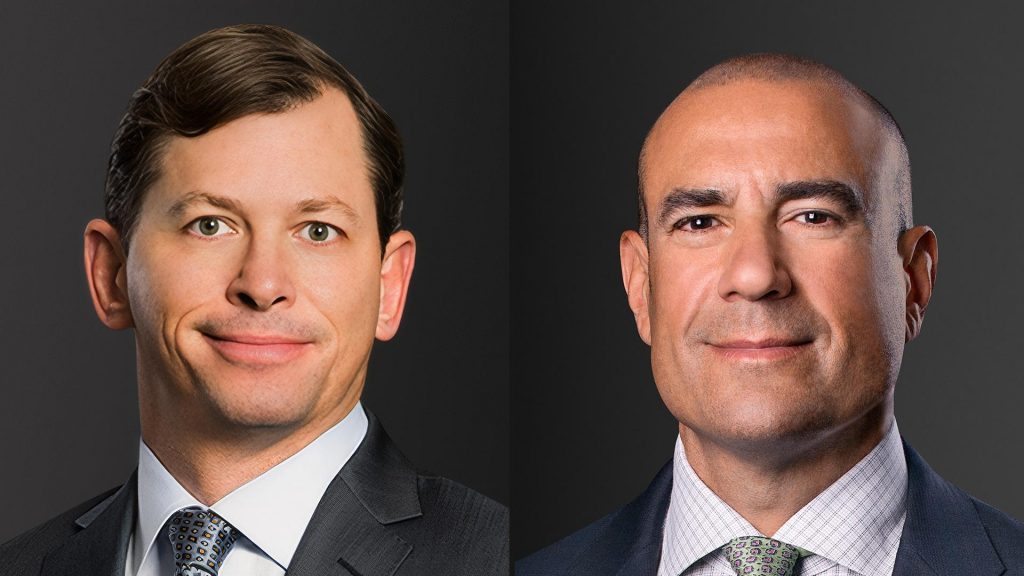While private equity managers hoping for a dealmaking bonanza under Donald Trump’s administration have been sorely disappointed, GTCR has bucked the trend with a series of gaudy exits.
The Chicago-based firm’s $45 billion in assets under management pale in comparison to Wall Street’s biggest players like Blackstone, Apollo and KKR, but none of its peers made off with a deal like GTCR’s and FIS’ sale of Worldpay to Global Payments for $24.25 billion, announced in April and expected to close in the first half of 2026. GTCR bought a 55% stake in the Cincinnati-based payment processing firm from FIS at an $18.5 billion valuation in July 2023, and flipped it in less than two years for double the equity it invested, according to reports. This, during a period when the average holding period for the private equity industry crept up to more than six years in 2023 and 2024, a signal that many firms are struggling to find buyers for their businesses.
The Worldpay sale came shortly after GTCR sold insurance broker AssuredPartners to Arthur J. Gallagher & Co. for $13.45 billion last December. GTCR created the business in partnership with its founding management team in 2011 and sold a majority stake to Apax Partners in 2015 before reacquiring it in 2019 at a reported $5.1 billion valuation. And since the Worldpay deal, GTCR announced two more smaller sales in May, offloading lab equipment firm Antylia Scientific and insurance software business Itel for more than $1 billion each.
“Deal pipelines have come down, and part of it is a little bit of a freeze associated with some of the policy changes, but I would absolutely not say that our orientation is to be paused,” says GTCR’s co-CEO Collin Roche. “We’re going to live with uncertainty. There’s not suddenly going to be one day that we’re going to have all the answers.”
The flurry of activity means GTCR is reportedly expecting to return north of $5 billion in proceeds to investors this year, building on a strong track record for its recent flagship funds. Pension fund documents show that its Fund XII has generated a net internal rate of return of 21% since 2017 through the end of 2024, and the average annual return for its 13th flagship fund is 18% since 2020. The five-year annualized return for the Cambridge Associates U.S. private equity index is 16%, while the 10-year figure is 15%.
GTCR’s creation dates back to the early days of private equity when it was founded in 1980 by Stanley Golder, Carl Thoma, Bryan Cressey and Bruce Rauner. Thoma and Cressey splintered off to form a new firm in 1998 that today is called Thoma Bravo and manages $184 billion in assets. Golder retired as a partner in 1993 and died in 2000, and Rauner retired as lead partner in 2012, later serving one term as the Republican governor of Illinois.
Roche and co-CEO Dean Mihas are the second generation of the firm’s leadership—Roche joined in 1996 and rose through the ranks leading its financial services investments, while Mihas was first hired in 2001 and headed its healthcare group. No partner currently owns more than 25% of the firm, according to SEC filings, and Blackstone bought a minority stake in 2021 at an undisclosed valuation.
Roche has been involved in fintech buyouts for payment processing firms for most of his career, including a $285 million acquisition of Transaction Network Services in 2001, so he was well-versed in the industry when the opportunity arose for the firm to make its biggest purchase ever in 2023. FIS had bought Worldpay in 2019 for $43 billion, but the business stalled in a competitive niche alongside peers like Stripe and Adyen.
“They had some declines in their small merchant category, which was under pressure, but they had good growth elsewhere,” says Roche. “Worldpay had the potential to win. It had just lost a bit of its competitive spirit.”
To reinvigorate the business, GTCR brought its former CEO Charles Drucker out of retirement after he’d stepped aside following the 2019 sale and partnered with him to buy a majority stake. It didn’t take long for its growth to accelerate, and Roche says conversations between the payment processing giants Global Payments and FIS, which predated even GTCR’s involvement in Worldpay, heated up with the private equity firm acting as an intermediary.
The final deal ended up being a complex swap with Global Payments acquiring Worldpay for $24.25 billion and selling its issuer solutions business to FIS for $13.5 billion. The end result allowed Global Payments to deepen its focus on merchant services while FIS could be more focused on financial institutions.
To facilitate the deal, GTCR also agreed to take 41% of its proceeds in Global Payments stock, an unusual move for a private equity firm. When the deal closes, GTCR will own 15% of the publicly traded company, with its shares locked up for 12 to 18 months. Global Payments shareholders initially frowned on the deal, sending the stock down 17% the day it was announced on April 17, though it has recouped most of those losses since.
Now, GTCR is focusing much of its attention on finding buying opportunities. It closed its latest $11.5 billion flagship fund in 2023 and also raised a $3.6 billion strategic growth fund this year targeting smaller buyouts, with equity investments ranging from $50 million to $250 million. GTCR has more than $10 billion in dry powder to deploy, according to a source familiar with the firm. It invested $1.33 billion in Austrian software quality testing company Tricentis last November.
“Environments like this historically have been good times to invest—periods of uncertainty where price expectations have gone down, maybe financing isn’t quite as accessible,” says Roche. “In times like this, we’re more oriented to being a buyer. It just so happens on the exit side [this year] we’ve had a lot of great companies.”

